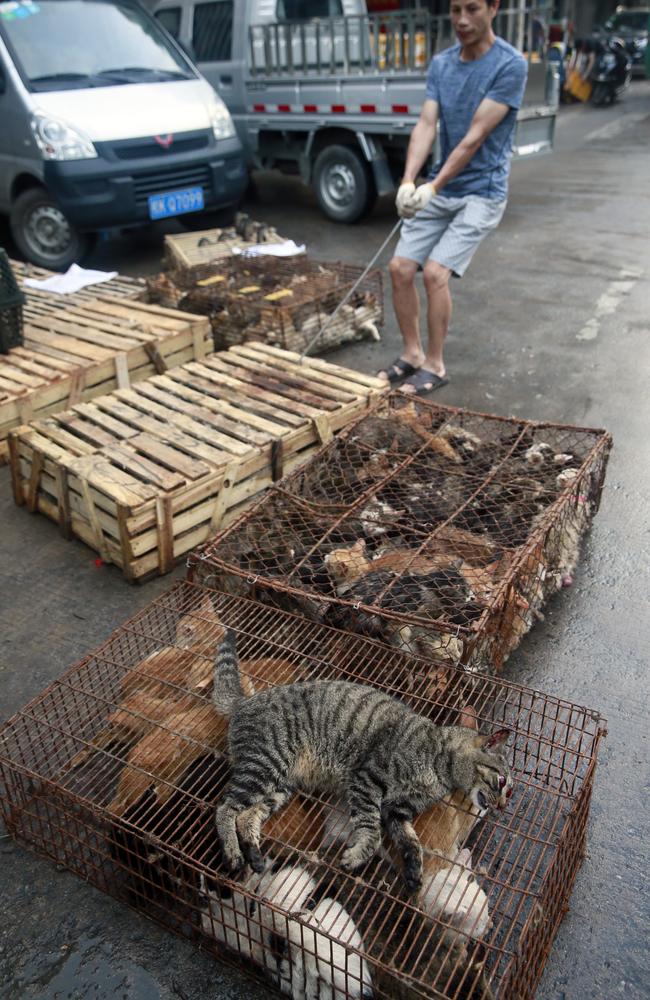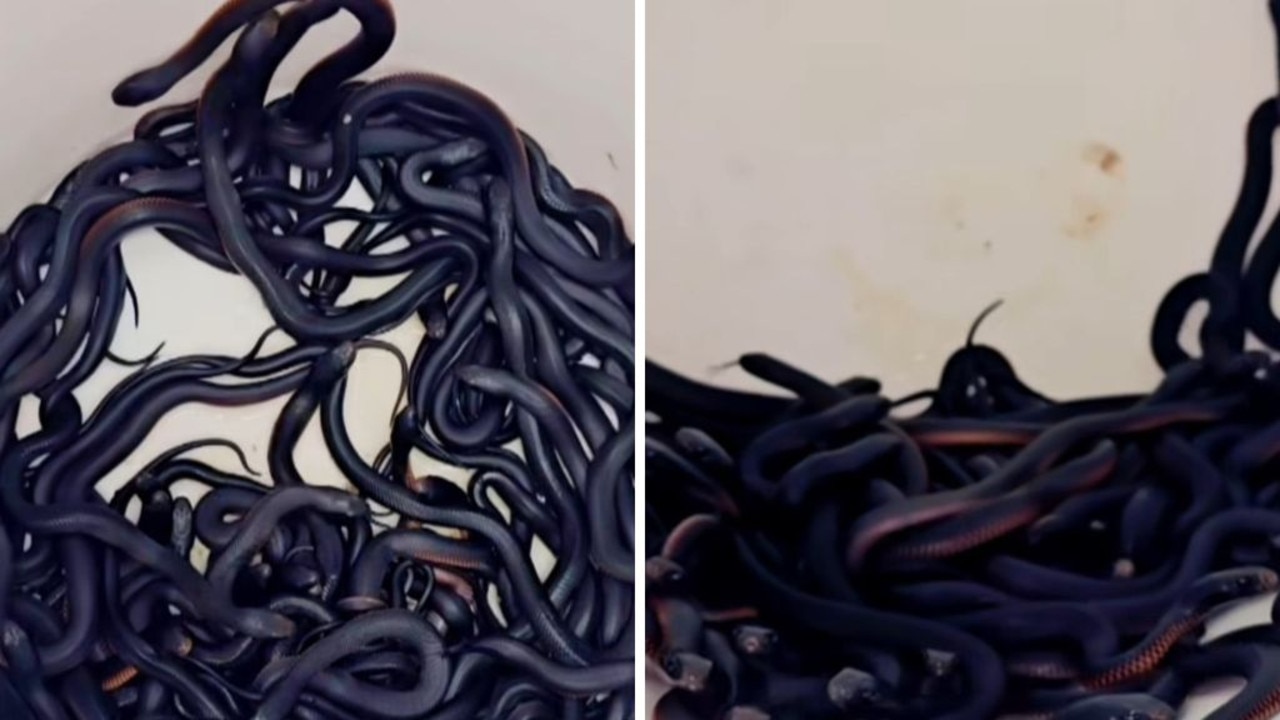China’s sick dog-eating festival spreads rabies to humans
IT’S the annual dog-eating ‘celebration’ that has horrified the West, but international condemnation may turn out to be the least of China’s problems. WARNING: GRAPHIC CONTENT
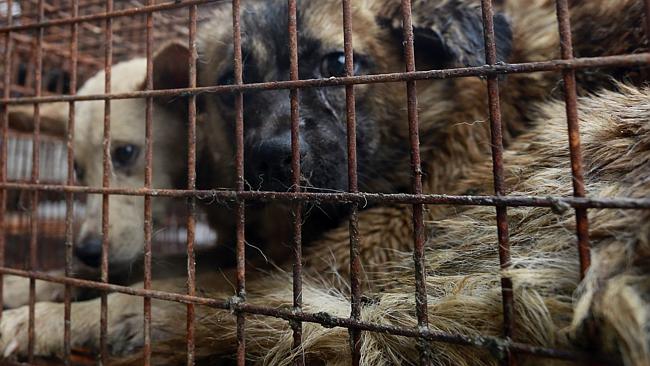
DISGUST at China’s sick dog-eating festival has spread around the world, and concerns it could spark a rabies epidemic are growing.
The barbaric celebration, which starts this weekend in Yulin, Guangxi Zhuang, sees stolen animals burned alive and slaughtered in the streets. Public torture is part of the sadistic “fun”, with pets run over with cars, torn to pieces and smashed with hammers.
Thousands of cats and dogs are packed in cages and driven to the region over long distances in crowded cages with no food and water, suffering painful side-effects from the poisoned bait that helped catch them.
They are forced to watch other animals being beaten to death and thrown in de-hairing machines before meeting their own gruesome fate at the summer solstice festivities.
What should really trouble callous festival-goers is the contagious diseases harboured by these wretched animals. Yulin has one of the highest incidences of rabies in the world, a petition by Duo Duo Animal Welfare Project pointed out, with 338 people contracting and dying from the disease between 2002 and 2006. The economic cost to the city was thought to be a huge 6.67 million Yuan ($1.39 million).
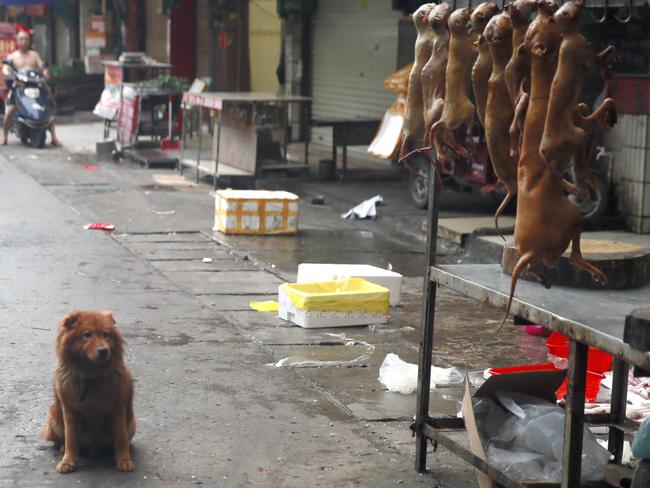
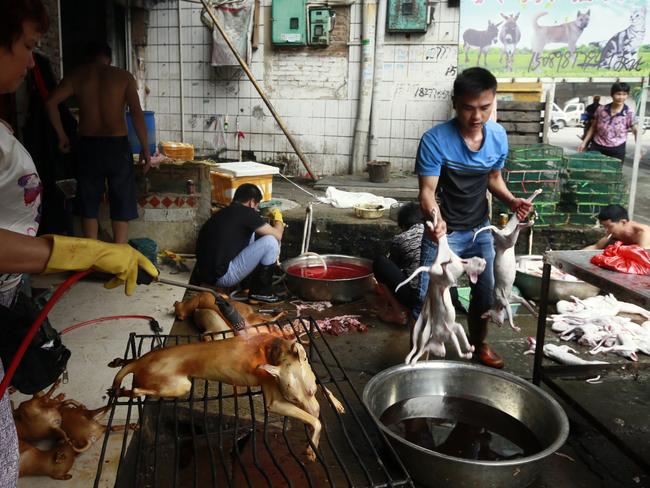
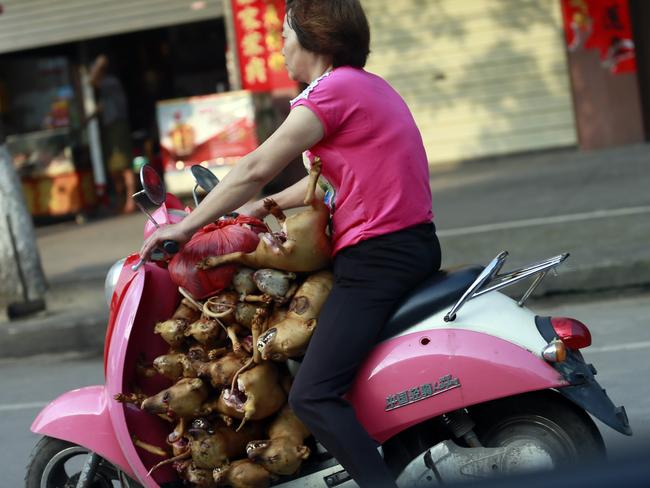
Sincere apologies. I didn't want to have to tweet these photos. Burnt & boiled alive for flavour. #StopYuLin2015 pic.twitter.com/NF3RKvGQ1X
— Ricky Gervais (@rickygervais) June 15, 2015Sick or dying animals with low immunity, transported in cramped dirty conditions, easily pass illnesses to each other and to humans. The Californian animal rights group said Yulin risked a “SARS-like” outbreak of disease.
Just two months ago in Zhejiang, 17 men pleaded guilty to trading in tons of toxic dog meat which ended up on dinner plates at restaurants between 2012 and 2013. They had killed 95 dogs in Ningbo city by poisoning them with cyanide or by shooting them with anaesthetic needles, according to Shanghaiist.
The safety issues are enormous, since the dogs are not considered food and therefore not properly quarantined or inspected for this purpose, IFAW reported.
The city government has proved oddly resistant to criticism of its barbaric “festival of cruelty”. In 2011, Jinhua Hutou Dog Meat Festival was banned for killing hundreds dogs within days. But in Yulin, 15,000 animals were butchered that year.
Last year, the event was toned down because of international pressure, and authorities said this year’s slaughter would be cancelled. Yet an undercover visit by Humane Society International’s Peter Li last month revealed preparations continuing as before — only without the festival’s old name.
Some believe celebrations have begun early to escape international condemnation.
Even in China, eating dog meat has not been fashionable or even acceptable for a thousand years, according to HSI policy specialist Dr Li. The event is not traditional, but was invented by dog-meat traders in 2010 to improve business.
Vendors were even seen last year trying to extort money from animal lovers by swinging dogs around by their necks, Shanghaiist reported.
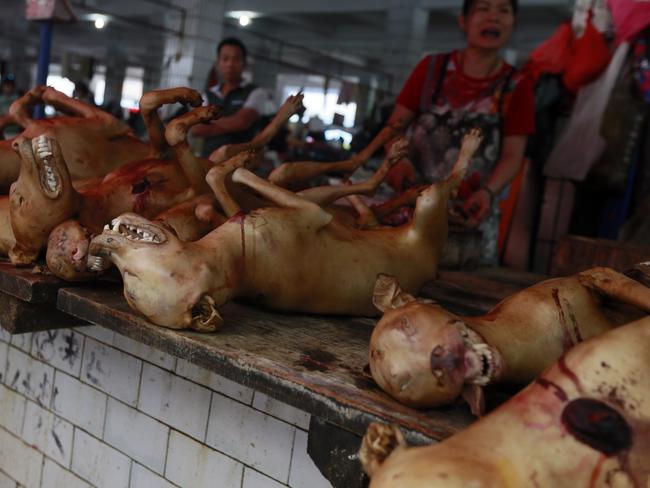
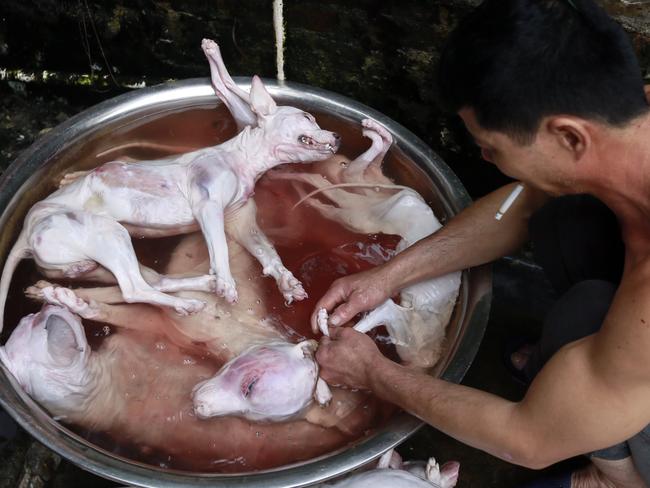

There are no animal protection laws in China, but pressure from the media, international organisations and celebrities including Ricky Gervais is mounting. The hashtag #StopYulin2015 is trending on Twitter and almost 1.5 million people have signed HSI’s petition.
The atrocious images of dogs being skinned and boiled alive, cut up with chainsaws and piled high for consumption in Yulin’s hundreds of slaughterhouses are too terrible for the world to stomach.
They are also too ghastly for young Chinese urbanites, whose parents may never have owned pets under the laws of the Cultural Revolution, but who have often bonded with animals as their generation moved far from home.
Young people are protesting over the theft and murder of their pets in the streets and on Weibo (the Chinese Twitter), and even intercepting illegal dog trucks.
Will this local action stop the pet traffickers? Will it take the power of global outrage? Or will the risk of their own painful deaths from rabies persuade those involved to find new forms of entertainment? All eyes are now on Yulin.
Find out more and sign the Humane Society International petition here.
